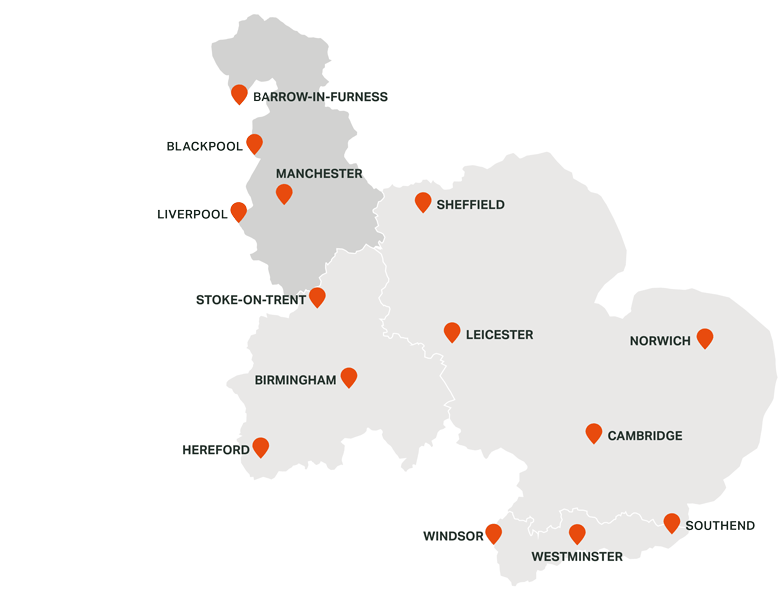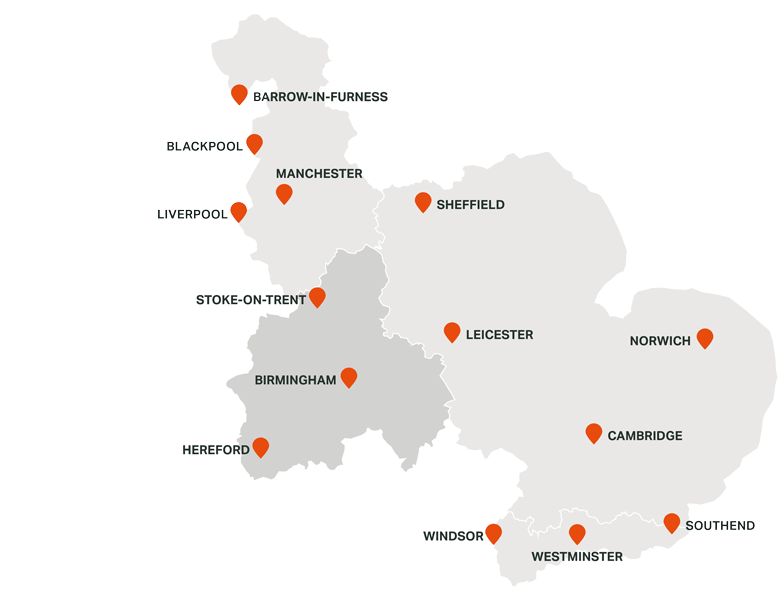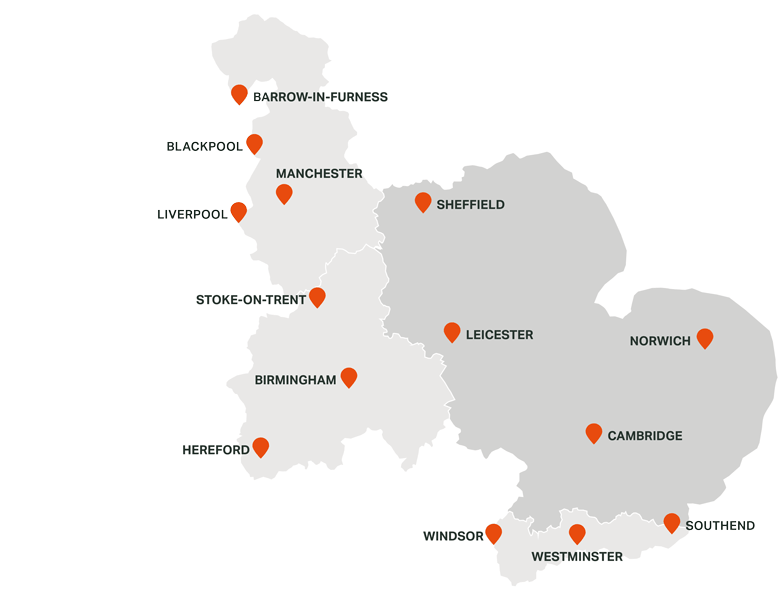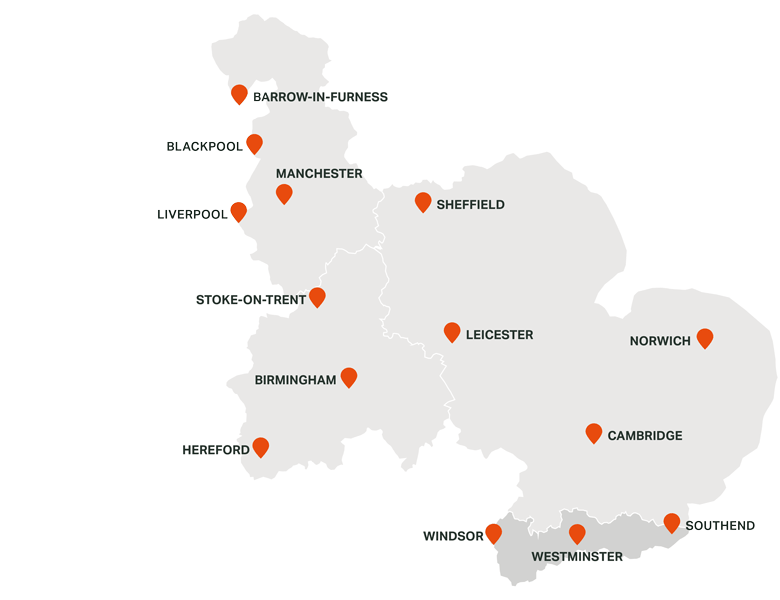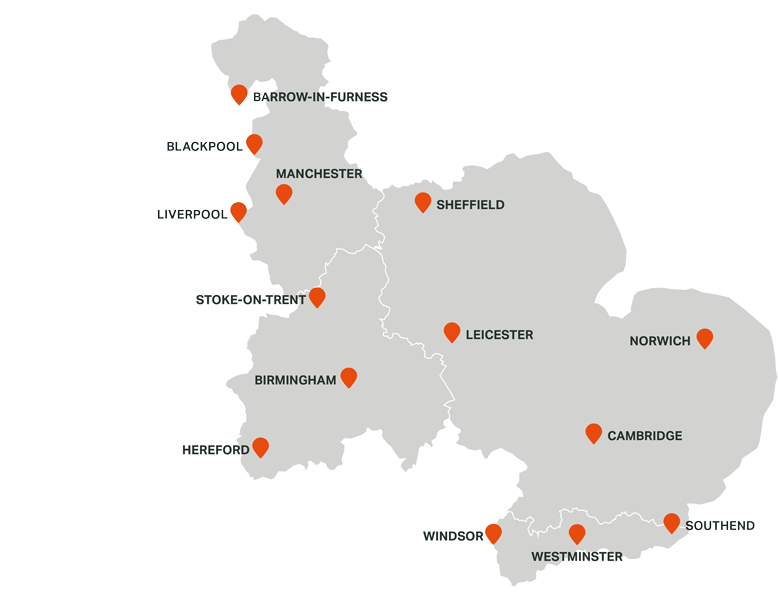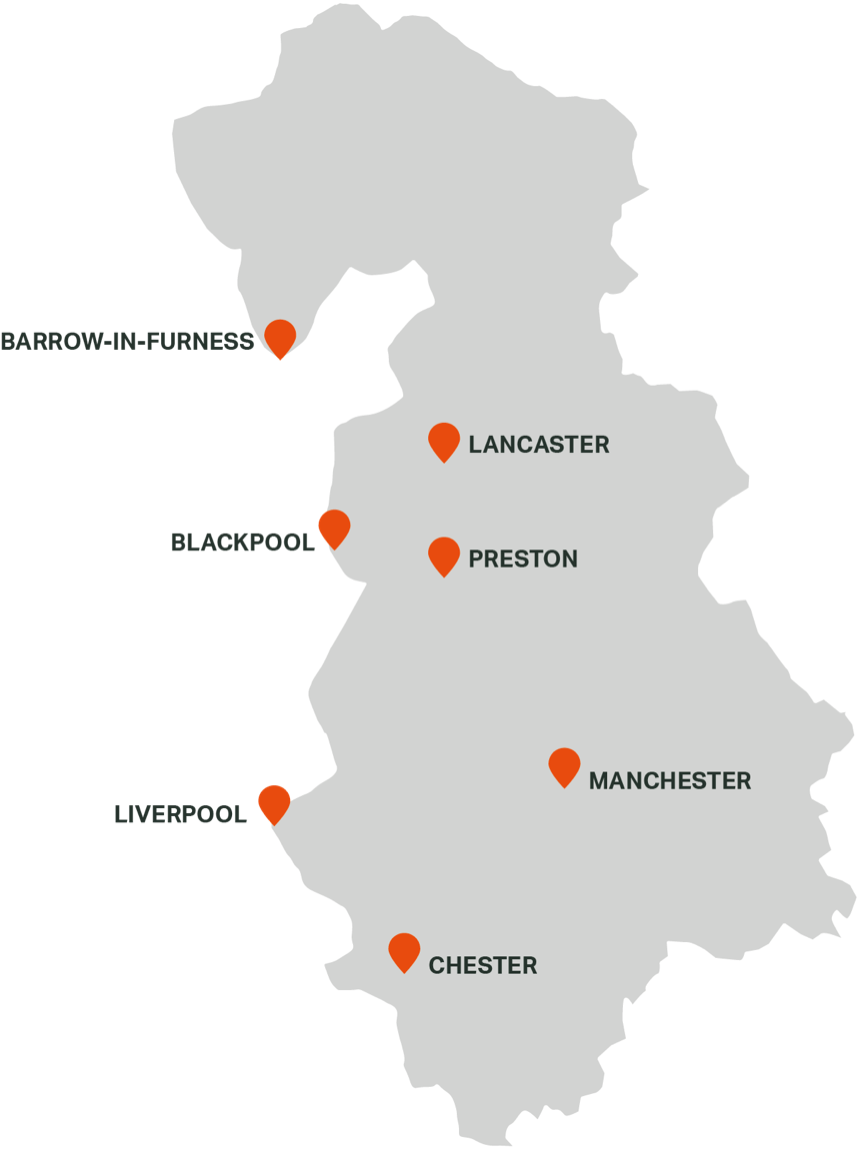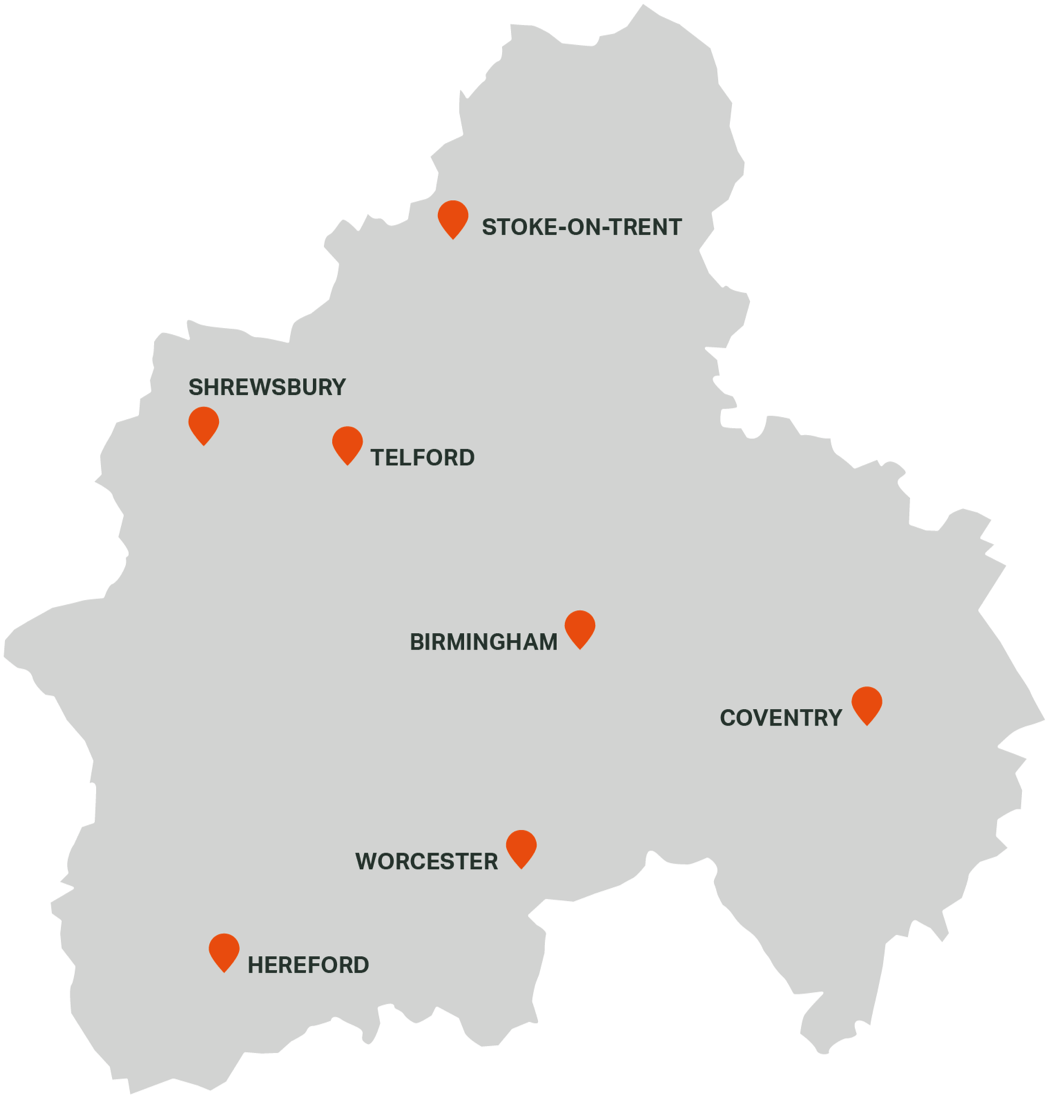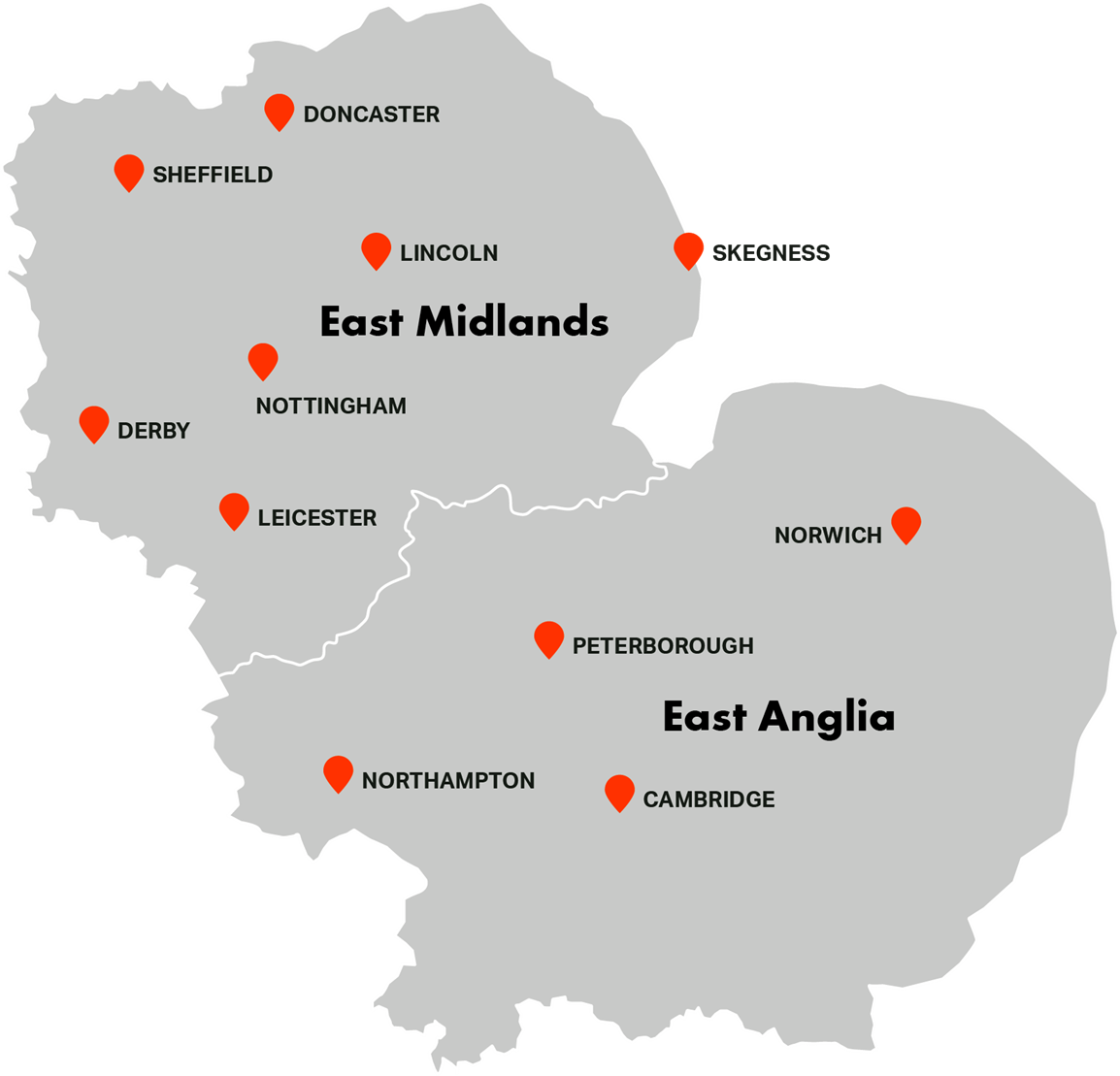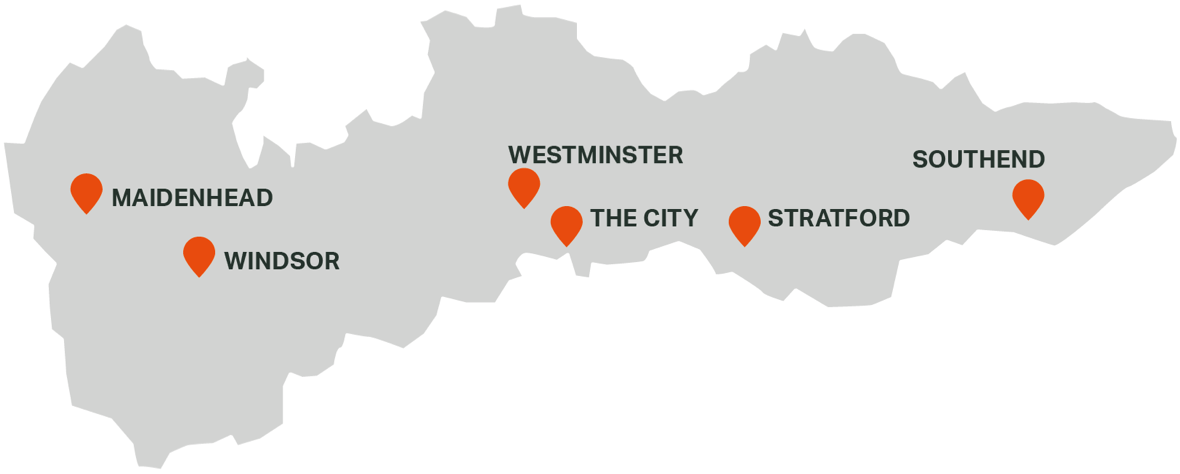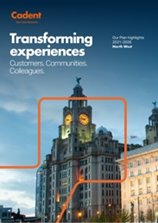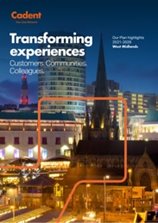Our North West network sits between the Pennines and the West Coast, and encompasses Ambleside in Cumbria, at its northernmost tip, and Whitchurch in the South.
Around 40% of the gas distributed into the North West network is used for businesses and industrial purposes; this is far higher than any other gas distribution network in the UK.
Upgrading our gas network
In the North West, we maintain a network of more than 21,000 miles of underground pipes and hundreds of above ground stations that deliver gas to 2.7 million homes, hospitals, schools, industry and other buildings, safely and reliably.
To put that into context, 21,000 miles is roughly equivalent to the distance from North West England to Sydney, Australia, and back again, with some left over. We also invest around £70 million every year in upgrading our older gas mains, some of which have been around since the 1800s. Where possible, we embrace new technology to carry out our work faster and more efficiently, including using robotics to upgrade the gas pipes remotely.
The Mersey Tunnels were constructed in the 1960s, and provide access to our assets which provide gas to many customers living and working in Manchester and Liverpool. We plan to invest £753,000 to proactively refurbish these assets and ensure a reliable gas supply to these cities now and in the future.
Using hydrogen to remove CO2 from the gas network: HyNet
We are working with our partners at Progressive Energy on HyNet, a significant clean growth opportunity for the UK.
We need to find a way to reduce or completely remove carbon dioxide from the UK gas network. At the same time, we continue to need power for the industries on which our economy relies. The HyNet project, which aims to produce hydrogen locally in the Liverpool-Manchester area, is designed to show at scale how we can meet the major challenges of reducing carbon emissions from industry, domestic heat and transport.
HyNet is based on the production of hydrogen from natural gas, using a process called steam methane reforming to convert natural gas into clean-burning hydrogen gas. The CO2 stored in the natural gas could then be stored in offshore gas reservoirs that are no longer used.
Decarbonising transport
We are proud partners of CNG Fuels, and are supporting them to connect more and more CNG refuelling stations to the gas grid, so fleet operators can benefit from the carbon reductions of using gas to power heavy transport. We supported the development of the Warrington refuelling station, Europe’s largest refuelling station for low carbon biomethane in trucks.
We have led the way in trialling motorbikes as part of our emergency response work, enabling our engineers to get to gas leaks up to 50% faster in busy urban areas – and with lower emissions. We are also adding electric motorbikes to our fleet, so we can further reduce our emissions while keeping the gas flowing safely and reliably to communities in the North West.





